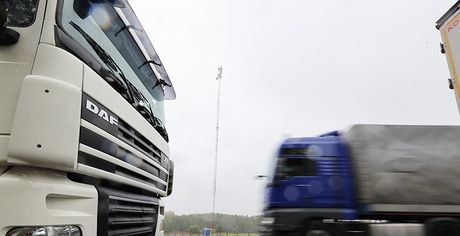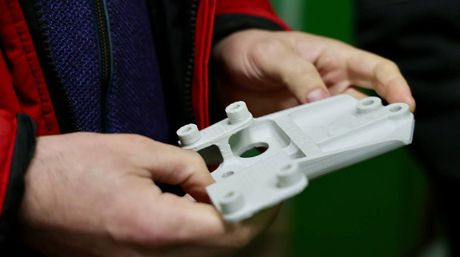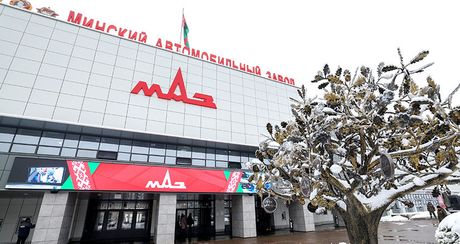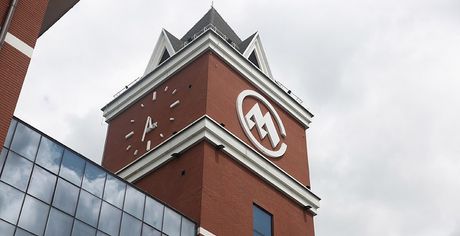Minsk Oblast, Russia's Arkhangelsk Oblast identify key cooperation avenues
18:04, 23 April
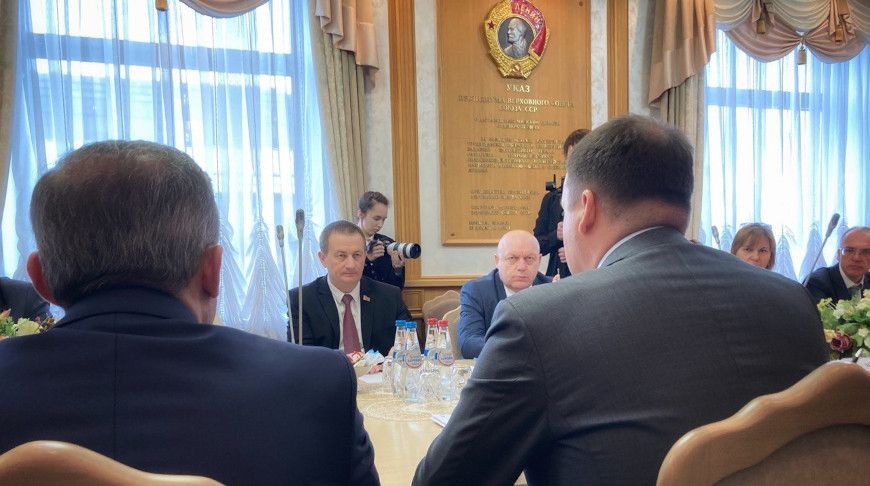
Photo courtesy of the Minsk Oblast Executive Committee
Minsk Oblast Governor Aleksandr Turchin and Governor of Russia's Arkhangelsk Oblast Alexander Tsybulsky signed the Action Plan for 2024-2026 to implement the cooperation agreement in trade, economy, science, technology and culture between the Minsk Oblast Executive Committee and the Arkhangelsk Oblast Government, BelTA has learned.
- Share on Facebook
- Share on VK
- Share on Twitter
“Our trade was quite vibrant last year, which suggests that we are moving in the right direction,” noted Aleksandr Turchin as he welcomed the delegation of the Russian region to the Minsk Oblast Executive Committee. “Today’s meeting is an opportunity to build a better understanding of how we can expand beneficial cooperation across the board. In some areas we could interact more deeply,” the governor said.
Minsk Oblast is home to BelAZ, the world's largest manufacturer of haul trucks and equipment for the mining and construction industries, as well as Amkodor-Logoisk that makes machines for the timber industry. Fire trucks are also assembled in the region. These trucks are made using reinforced fiberglass (material that is not susceptible to moister) instead of regular metal.
“You can use sea water there. We buy this equipment for our needs, we are happy with its quality,” said Aleksandr Turchin.
Other important areas of cooperation include food supplies, healthcare, education, culture, contacts between youth associations, and tourism.
Alexander Tsybulsky thanked the governor for the warm welcome. “Our delegation includes representatives of more than 30 companies who have come here to meet with Belarusian producers,” he noted. “Minsk Oblast is very interesting for us. Sanctions landed us in a difficult situation, since we used to buy a large number of logging equipment from Europe and to supply our products there. Yet, we have managed to redirect our exports to other markets and find new partners.”
The governor spoke about the region's strategy to deal with the sanctions and invited a delegation from the Minsk Oblast Executive Committee, led by Aleksandr Turchin, to visit Arkhangelsk Oblast. Forestry companies are considering the purchase of Amkodor equipment, and there are plans to buy BelAZ trucks. The Russian delegation will also study an offer to supply fire trucks.
“It is very important to keep in touch in order to quickly resolve issues,” noted Alexander Tsybulsky.
The Arkhangelsk Oblast delegation arrived in Minsk on the first direct flight launched between Belarus and the Russian region. The participants of the meeting are confident that such a flight will help intensify business contacts and promote tourism. There are many things to see and to be impressed with in Belarus and Arkhangelsk Oblast. For example, Arkhangelsk Oblast boasts unique specimens of well-preserved wooden architecture.
Patriotic education of the youth was also raised during the talks. Representatives of Arkhangelsk Oblast visited the museum of the Khatyn Memorial Complex the day before and were very impressed by what they saw.
“We definitely need to bring young people here. I’ve never seen anything like this anywhere else, it gives me goosebumps,” said Alexander Tsybulsky.
Aleksandr Turchin told his counterpart that the memorial complex was reconstructed on behalf of the president, and a museum was created there within 10 months. Last year alone it was visited by 500,000 people. This year, as the country marks the 80th anniversary of its liberation from the Nazi invaders, the territory of the Mound of Glory Memorial Complex is being renovated.
“Our regions complement each other. I will be happy to fly to Arkhangelsk. There are topics that we need to finalize; we can become an example of interregional and even interstate cooperation,” said Aleksandr Tuchin.
At the end of the meeting, the parties exchanged souvenirs.
Trade between Minsk Oblast and Arkhangelsk Oblast exceeded $36 million in 2023, up three times. The export of Belarusian goods over the past year increased 4.4 times; the main exports were trucks, component parts for lifting and moving equipment, organic chemical compounds, salt, and foodstuffs. Minsk Oblast imported wood pulp, paper and cardboard, as well as tall oil.



